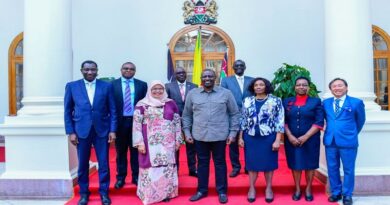World Lion Day: Nigeria’s lions on verge of extinction
A non-governmental organization (NGO) WildAid, an environmental NGO, on Wednesday said Nigeria’s lions were on the verge of extinction.
This is contained in a statement signed by Kelechukwu Iruoma, WildAid Representative in Nigeria and made available to the News Agency of Nigeria (NAN) in Lagos.
WildAid said that it launched a week-long campaign on Wednesday to raise awareness about the threats facing Nigeria’s lions to mark World Lion Day.
WildAid said that over the last 50 years, the number of wild lions across Africa had plummeted from 200,000 to roughly 20,000.
“The crisis is most acute in West Africa, where there are only about 400 lions left, surviving in a few small isolated clusters.
“In Nigeria, lions are on the verge of extinction, with scientists estimating that there may be fewer than 50 adult lions left in the wild.
“In the past, lions roamed northern Nigeria in large numbers, primarily residing in the Kainji Lake National Park and the Yankari Game Reserve,” WildAid said.
The statement quoted Simon Denver, Senior African Representative for WildAid as saying: “Hunting for bush meat has seriously depleted lions’ natural prey base, while population growth and the expansion of agricultural land has badly eaten into their habitats.
“Lions in Nigeria and across West Africa need urgent help to prevent them from disappearing forever.”
Denver said that the intense pressures on lions’ natural prey caused by bush meat trade and the erosion of their habitats often force them to kill cattle for food.
According to him, the phenomenon brings lions into conflict with humans, who kill lions in retaliation, sometimes using poison.
He said that snares and traps set by bush meat hunters also often inadvertently caught lions and other predators.
“Lion populations in East and Southern Africa are feeling the same pressures – even in Tanzania, which is considered to be the stronghold of Africa’s remaining lions.
“Tanzania has the largest population of lions in Africa with about 8,000 animals left in the wild.
“They provide an important draw for Tanzania’s tourism industry, which generates around 1.5 million jobs and contributes around 17 per cent to the nation’s Gross Domestic Product (GDP).
“It is not too late to save Nigeria’s lions but we need to act now to protect them,”
. “We urge the Nigerian government to update its wildlife laws to combat the threats facing lions and other wildlife.” the statement said.
WildAid stressed the importance of improving enforcement and anti-poaching patrols around national parks including working with communities around the parks to stop the illegal bush meat trade.
Denver said that other stakeholders also needed to collaborate to raise awareness on the need to protect the country’s remaining lions, and to promote wildlife conservation and tourism, creating jobs and revenue.
“WildAid is also calling on all Nigerians to say no to Illegal bush meat as a way to ease some of those pressures on lions and other important species in the country,” he said.
NAN reports that Aug.10, every year is set aside by the international community to mark World Lion’s Day.
By Fabian Ekeruche




